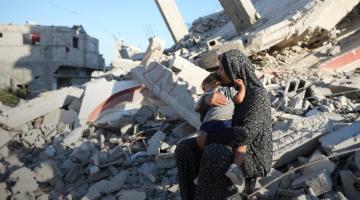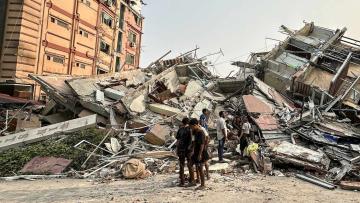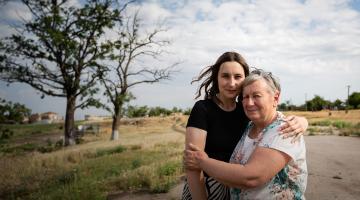
Fleeing the liquid ground: One family’s terrifying escape from liquefaction
A phenomenon called liquefaction contributed to the destruction caused by the earthquake in Indonesia in September. One family recounts their incredible escape as their village sank into the ground.
17 December 2017
A phenomenon called liquefaction contributed to the destruction caused by the earthquake in Indonesia in September. One family recounts their incredible escape as their village sank into the ground.
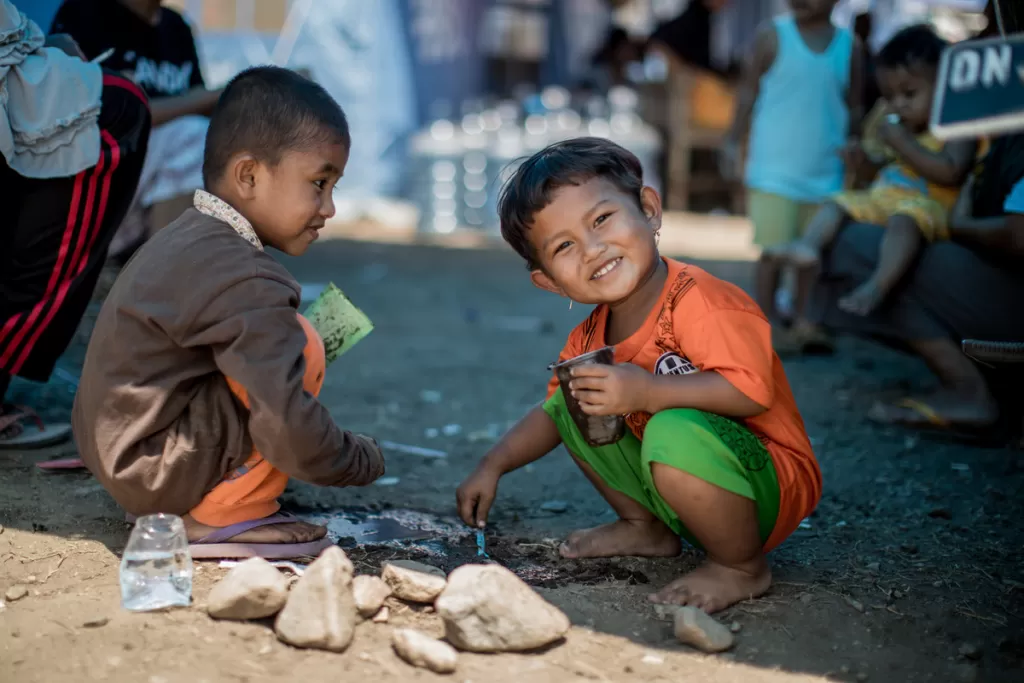
Dewi, right, was pulled out of the mud by her hair after she sank up to her neck. Image: Kathleen Prior/DEC
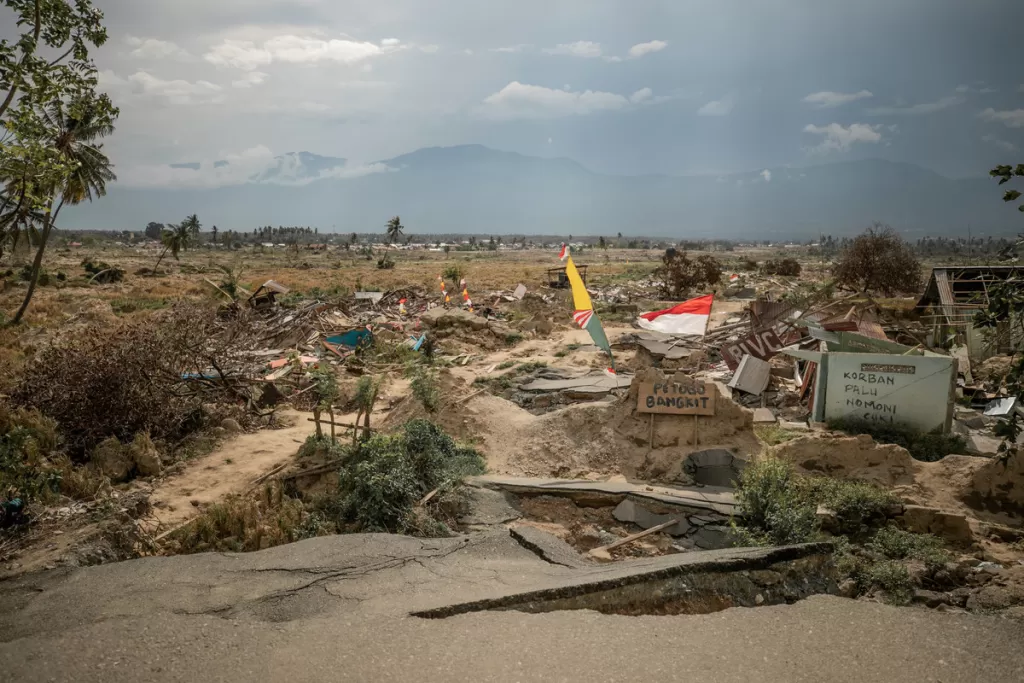
The site of the village of Petobo, which was destroyed by liquefaction. The sign reads 'rise up Petobo'. Image: Kathleen Prior/DEC.
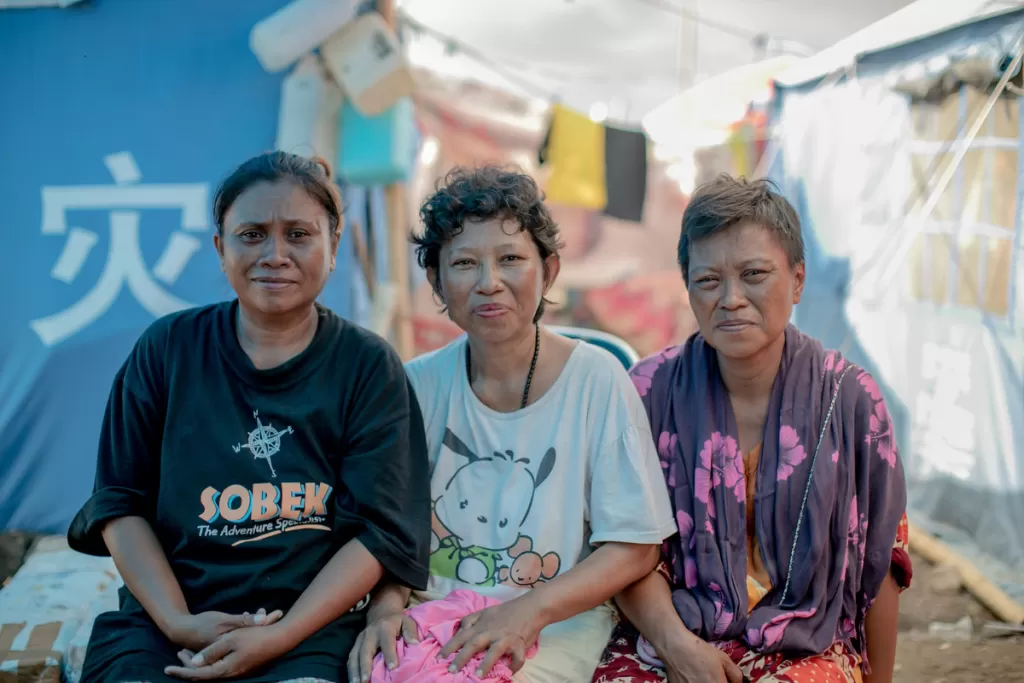
Ani (centre) and Nuri (right) with their sister Nur-Ain (left) outside their tent at a displaced persons camp near Petobo. Image: Kathleen Prior/DEC.
